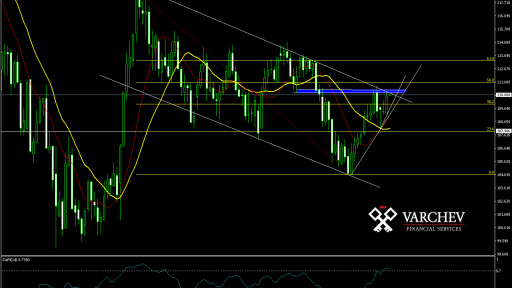- Home
- >
- FX Daily Forecasts
- >
- USD/JPY: Fundamental and weekly forecast

USD/JPY: Fundamental and weekly forecast

One of the most popular currency pairs USD/JPY rose in the past week, supported by the growing spread between US and Japanese government bonds. This bond yield movement reflects the difference between the aggressive (hawkish) Fed and the Dovish Bank of Japan. There was also selling pressure towards the end of the week, mainly coupled with purchases of the Japanese yen due to trade tensions between the US and China.
On Friday, BoJ voted to keep its loose monetary policy and reduce its outlook on inflation, indicating that it would lag behind the US in post-crisis stimulus.
Japan's central bank kept its short-term interest rates at -0.10% and pledged to guide yields on 10-year government bonds around 0%. With regard to inflation, "consumer price growth is in the range of 0.5% to 1%," BoJ commented.
Additionally, BoJ continued to express the same view that the country's economy is expanding at a moderate pace, not generally affected by the decline in GDP in the first quarter.
In addition, the bank continued with caution about whether inflation would reach its target of 2%, commenting that their expectations of this percentage are in consolidation. In April, for example, consumer prices grew 0.7% year on year, slowing for the second consecutive month.
Forecast
The long-term picture of USD/JPY speaks for the continuing of the growth of the differential in the yield of US and Japanese government securities. In the short run, however, we may witness increased selling pressure for the purchase of safe-haven assets due to the escalation of the fears of the US-China trade war.
Overall, everything depends on the bond yield movement. If US stocks fall because of the trade war, then investors will seek protection in the face of bonds. This will lower the yield on them. If the yield falls, then the dollar will become a less attractive investment. Additionally, a decline in stocks will trigger investors' old move to leave risky markets and buy the yen.
This week, investors will have the opportunity to respond to the speech of the president of BoJ Kuroda. He may reveal the future plans of the central bank in the battle with low inflation. He can also comment on US-related trade problems. Recently, Trump threatened to impose a duty on car imports. This is a threat to an export-oriented Japanese economy.
 Trader Aleksandar Kumanov
Trader Aleksandar Kumanov Read more:
If you think, we can improve that section,
please comment. Your oppinion is imortant for us.











